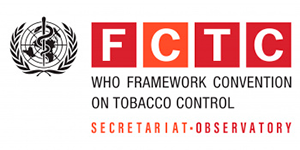The expression "Revolving door" ''revolving door'' is used to describe situations in which politicians or public servants assume positions '''as lobbyists or consultants''' in the area of their previous activity in the public service. It is also a two-way street that also allows former employees in the private sector to accept positions in government, where they will have the power to regulate the sector in which they previously worked.
A job in the industry can be a reward for services rendered to the industry, whether sharing information or exerting influence over regulatory preparation or decision-making processes. Likewise, recruiting a public servant who has worked in a privileged position to exert lobbying can be interesting for the industry, as someone in this condition carries a network of relationships that they can continue to use.
Kenneth Clarke: Key Positions Simultaneously in British American Tobacco (BAT) and UK Government
An example of someone with a career combining tobacco industry and government jobs is Kenneth Clarke. From 1998 to 2007 he was an informal Independent Director at BAT and had to deal with allegations of the company's involvement in smuggling. In the same period, he held various positions in the British government, such as Secretary of State for Justice and Shady Affairs and Chancellor of the Exchequer, as well as former Secretary of Health. The above page on Clarke contains examples of conflicting interests.
Martin Liptrot: Combining Politics, Tobacco, Public Relations & Public Affairs
Martin Liptrot's career is another typical example of the 'Revolving Door', spanning politics, the tobacco industry and PR.
Starting out as a press and campaign adviser for the Labor Party in the North West of the UK, he was recruited by Philip Morris in 1997, four months after Tony Blair's Labor party came to power. When the Blair government was elected, many companies were eager to employ people with ties to their party. Liptrot, a non-smoker, joined Philip Morris in London. Later, in Switzerland, he helped to reconfigure the company's public relations policy beyond mere litigation against its critics, as attested in "CSR Policy and Stakeholder Outreach".1. After six years in distinguished positions in the Public Affairs and Public Affairs departments of Philip Morris and its parent company, Altria, Liptrot joined Fedex in 2003, where he campaigned for lower barriers to global trade.
In 2006, Liptrot was named CEO of Ogilvy Public Relations Worldwide, where he stayed for two years, before becoming head of communications at GE Energy Services in 2008. From 2012 to 2013, Liptrot was rehired by Philip Morris International, this time as Director of Corporate Communications in Lausanne. He currently works in Florida as the president of his own Public Relations firm.2.
In this regard, see also:
- Influencing Decision Makers
- Techniques involving Third Parties
- Legal Tactics
- 1. HALL, Ian. Profile: Martin Liptrot, EMEA, Ogilvy PR Worldwide: From Merseyside to Canary Wharf, via Manhattan and Memphis, Martin Liptrot has forged a diverse path to Ogilvy PR Worldwide’s top EMEA job. PRWeek, 19 jan. 2006. Disponível em: http://www.prweek.com/article/536252/profile-martin-liptrot-emea-ogilvy-... http://www.prweek.com/article/536252/profile-martin-liptrot-emea-ogilvy-.... Acesso em: 24 nov. 2014. Documento integral em PDF: https://drive.google.com/file/d/0B0HvJttn0WXDanVBQ1hrUXlTd3M/view?usp=sh....
- 2. LIPROT, Martin. [Perfil profissional do Linkedin]. Linkedin. Disponível em:https://www.linkedin.com/pub/martin-liptrot/10/781/37b https://www.linkedin.com/pub/martin-liptrot/10/781/37b. Acesso em: 24 nov. 2014. Documento integral em PDF: https://drive.google.com/file/d/0B0HvJttn0WXDRnU4VVNTLUVPVlE/view?usp=sh....

